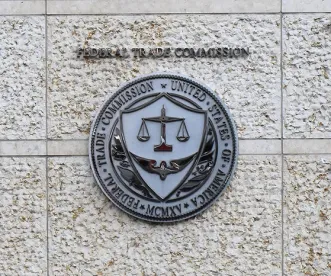For the first time in 40 years, the Federal Trade Commission (FTC) has taken action to enforce Section 8 of the Clayton Act, which prohibits so-called interlocking directorates. In the same action, the FTC mounted its first challenge in decades to a proposed transaction as a standalone violation of Section 5 of the FTC Act, which bars “unfair methods of competition.”
On August 16, the FTC approved a consent order effectively undoing a $5.2 billion cash-and-stock deal between private equity firm Quantum Energy Partners and natural gas producer EQT Corporation. According to the FTC, Quantum and EQT are direct competitors in the production and sale of natural gas in the Appalachian Basin. Under the proposed deal, EQT would have acquired two of Quantum’s portfolio companies, in exchange for which Quantum would become one of EQT’s largest shareholders and receive a seat on EQT’s board of directors.
The FTC’s Allegations
The FTC’s complaint filed with the consent order charged that by agreeing to install a Quantum designee on EQT’s board, the parties created an interlocking directorate — an arrangement that occurs when an officer or director of one corporation serves as an officer or director of a competing corporation — in violation of Section 8 of the Clayton Act. Section 8 broadly prohibits individuals from serving as an officer or director of two competing corporations, subject to certain exceptions based on the corporations’ finances and the amount of business for which they compete.
The FTC also alleged that Quantum’s large share of EQT stock would give Quantum the ability to sway competitive decision making at EQT, as well as access to EQT’s competitively sensitive information. This, the FTC said, constituted an “unfair method of competition,” in violation of Section 5 of the FTC Act.
The complaint also took aim at an existing joint venture between Quantum and EQT. The FTC alleged that the joint venture, established to purchase mineral rights for EQT’s future drilling plans, presented the parties with another opportunity to exchange competitively sensitive information, in violation of Section 5.
The consent order settling the FTC’s claims provides what the Commission describes as “ground-breaking structural relief.” The order prohibits Quantum from occupying an EQT board seat, requires Quantum to divest its EQT shares, bars the parties from sharing competitive information, and requires them to unwind their joint venture. In addition, Quantum is prohibited, absent the FTC’s prior approval, from serving on the board of any of the top seven natural gas producers in the region.
The Pennsylvania Attorney General prepared a substantially similar complaint and entered a final consent judgment adopting the terms of the FTC consent order.
The FTC Executes on Its Policy Agenda
The FTC’s action is notable for several reasons. As discussed above, this marks the FTC’s first case in four decades that enforces Section 8 of the Clayton Act. Historically, the statute was rarely enforced, with the antitrust agencies addressing Section 8 violations by dismissing actions or closing investigations after the parties ended the offending interlocks. In a statement accompanying the action, FTC Chair Lina Khan described the complaint and consent order as part of an effort to “reactivate Section 8,” and we expect the Commission may bring similar cases going forward.
Not only is this the FTC’s first standalone Section 8 enforcement action in 40 years, but the action also represents a novel application of Section 8, which by its terms prohibits interlocks among competing “corporations.” Quantum is not a corporation but a limited partnership. As Chair Khan wrote in her statement, the action “puts industry actors on notice that they must follow Section 8 no matter what specific corporate form their business takes.”
In addition, this is the first case in decades where the FTC has challenged a deal as a standalone violation of Section 5 of the FTC Act. Although the FTC often brings Section 5 claims, since the 1980s it has only done so when the challenged conduct runs afoul of the Sherman or Clayton Acts. As recently as 2015, the Commission’s position was that it would be “less likely” to challenge an act or practice under Section 5 on a “standalone” basis if the act or practice could be sufficiently challenged under the antitrust laws.
That position changed, however, in November 2022, when the FTC issued a new policy statement announcing its commitment to “enforcing and administering the prohibition against ‘unfair methods of competition’ on a standalone basis, as laid out in Section 5,” even if the conduct did not violate the antitrust laws. With this action, the FTC appears to have made good on that commitment.
Finally, it is notable that the unfair method of competition targeted in the FTC’s complaint was the potential sharing of competitively sensitive information between Quantum and EQT. Existing antitrust law holds the exchange of competitive information, without an agreement to fix prices, rig bids, or allocate markets, is not itself automatically unlawful. Instead, information sharing without an agreement to fix prices or reduce output may be found unlawful based on an actual finding of harm to competition and a consideration of any countervailing procompetitive benefits from the exchange.
The FTC’s action is consistent with the antitrust agencies’ announced policy agendas and enforcement priorities toward information sharing between competitors and interlocking directorates. Earlier this year, the U.S. Department of Justice’s Antitrust Division (DOJ), followed by the FTC, withdrew a longstanding health care policy statement providing a safe harbor for certain exchanges of price and cost information. And on the same day the FTC announced this action, DOJ announced that two directors of Pinterest Inc. resigned their positions on a competitor’s board in response to the Department’s ongoing enforcement efforts around Section 8.
The FTC’s action should give pause to companies that share officers and directors with competitors, participate in joint ventures or other collaborations that may involve the exchange of competitively sensitive information, or that are contemplating transactions that could threaten either eventuality.






 />i
/>i
